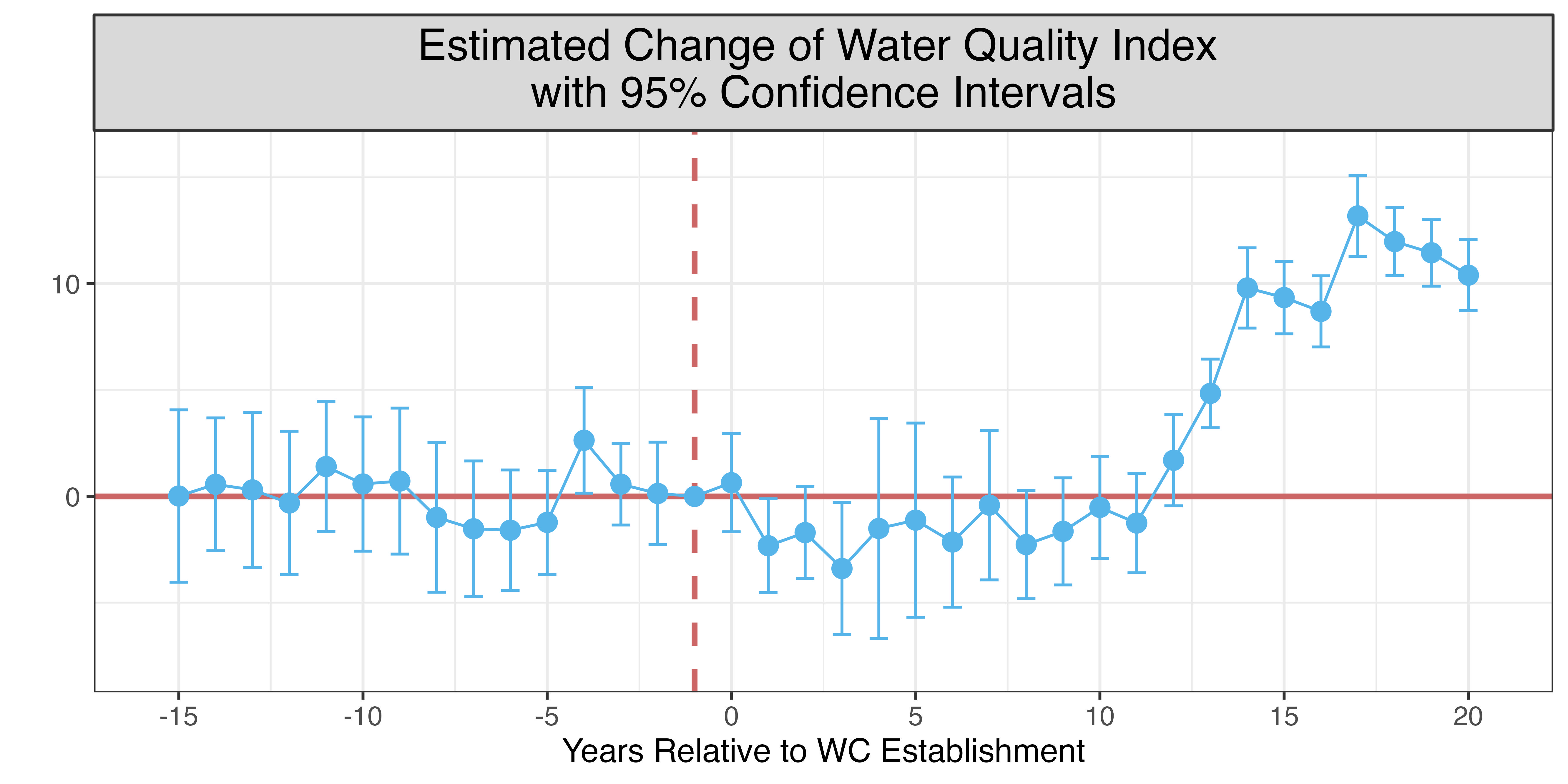Abstract
Diversity and inclusion are key values in collaborative governance, yet their empirical impacts on environmental outcomes remain understudied. This research investigates whether participant diversity and the inclusion of nongovernmental actors mediate the effects of collaborative governance regimes (CGRs) on environmental outcomes. Drawing on data from 150 water quality monitoring stations, 59 CGRs (i.e., watershed councils), and over 18,000 restoration projects in Oregon spanning 1981-2021, I employ a staggered difference-in-differences approach with causal mediation analysis. Results reveal that CGRs, on average, improve water quality by 6 percent, with participant diversity serving as the mediator, especially through contributions from nongovernmental actors and citizen groups. Subgroup analysis further shows that CGRs reduce water quality disparities between underserved Black communities and more advantaged communities. These findings emphasize the importance of diverse, inclusive participation in enhancing environmental outcomes and offer guidance for public managers aiming to create equitable and effective socio-ecological systems.
Figure 3: Average Treatment Effect
